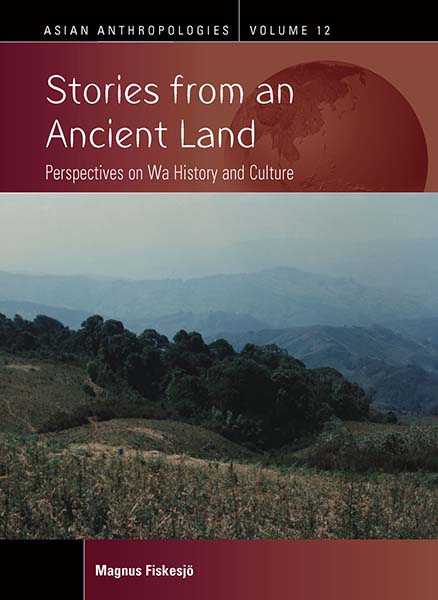-

Rumah Busana Betawi (House of Betawi attires) (Srengseng Sawah, Betawi Village in the south of Jakarta).
-

Rumah Busana Betawi (House of Betawi attires) (Srengseng Sawah, Betawi Village in the south of Jakarta).
-
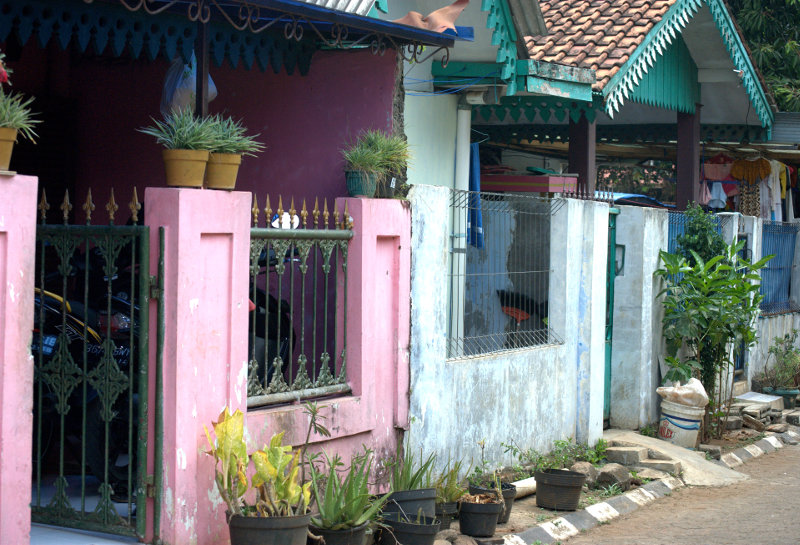
Traditional Betawi house (in Srengseng Sawah, Betawi Village in the south of Jakarta).
-
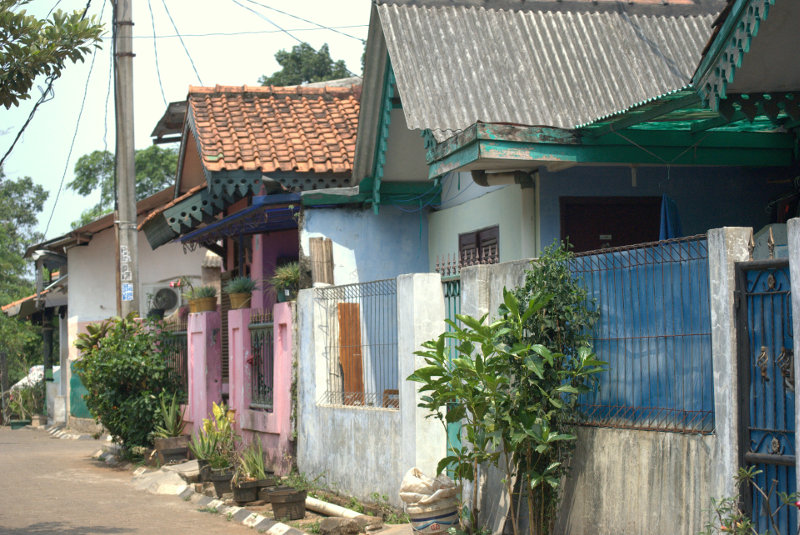
Traditional Betawi house (in Srengseng Sawah, Betawi Village in the south of Jakarta).
-
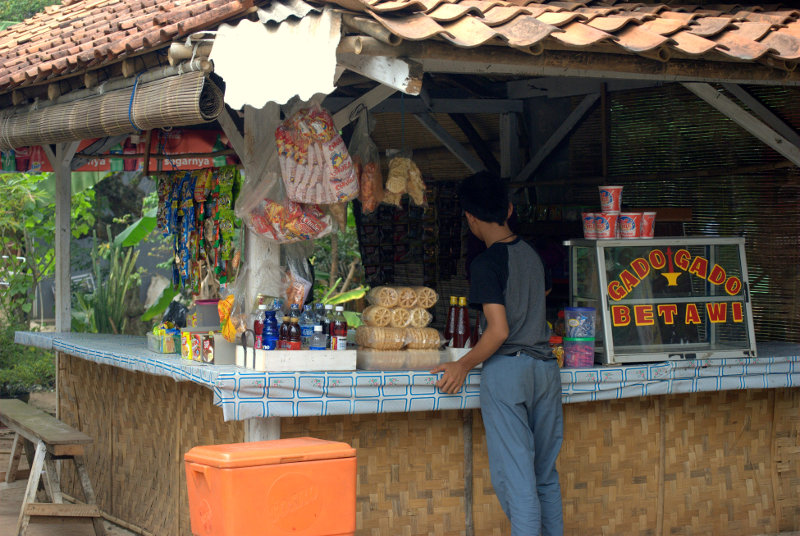
Food stall, selling, amongst others, Gado-Gado Betawi, a popular dish consisting of vegetables and peanut sauce.
-
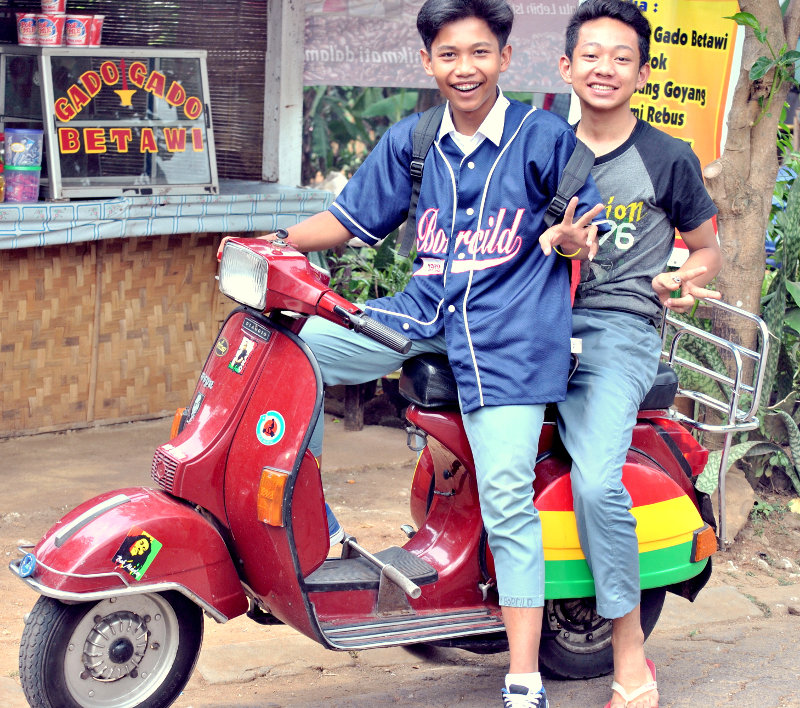
Young Betawi in front of the food stall selling Gado-Gado Betawi.
-
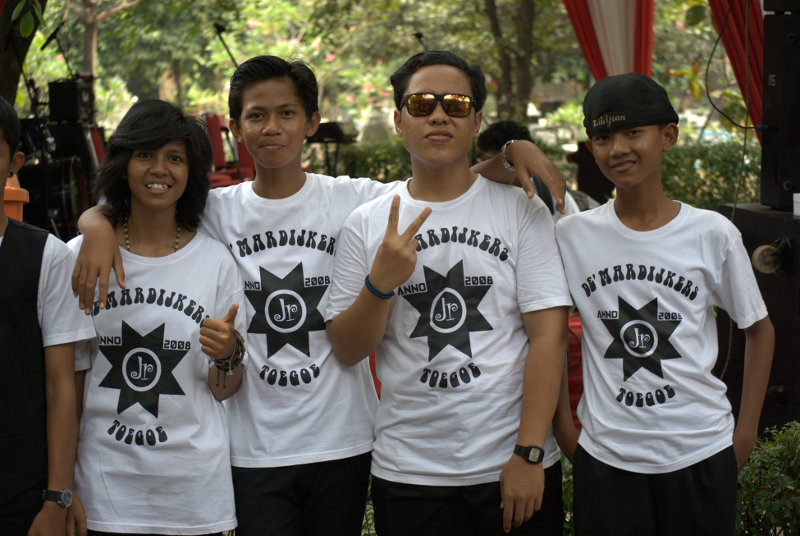
Young Keroncong musicians, wearing T-shirts making reference to the Mardijkers, the ancestors of the Tugu (Toegoe=old spelling).
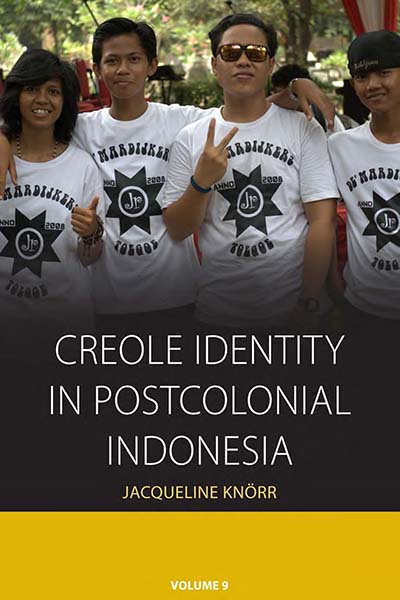
Series
Volume 9
Integration and Conflict Studies
See Related
Anthropology JournalsEmail Newsletters
Sign up for our email newsletters to get customized updates on new Berghahn publications.
Creole Identity in Postcolonial Indonesia
Jacqueline Knörr
Full Text PDF | Full Text ePUB Made available under a CC BY-NC-ND 4. license with financial support from the Max Planck Institute for Social Anthropology.
236 pages, 15 illus., bibliog., index
ISBN 978-1-78238-268-3 $135.00/£104.00 / Hb / Published (March 2014)
ISBN 978-1-78533-812-0 $19.95/£15.95 / Pb / Published (April 2018)
Reviews
“Creole Identity in Postcolonial Indonesia reveals some fundamental aspects of ethnicity, nationalism, and the transethnicity that bind them…the sort of transethnic creolization that Knorr describes is probably common in the modern world, if not the very nature of modern culture- and identity-making processes. Her book is a valuable description of phenomena in one postcolonial setting that can and should be applied as widely as possible.” · Anthropology Review Database
“This is a very strong ethnographic account of a process of ethnic identity formation of a specific kind. The book is strong in its theoretical and its ethnographic contributions,…especially in refining the concepts of creolization and pidginization, based on rich source material.” · C. S. van der Waal, Stellenbosch University
Description
Contributing to identity formation in ethnically and religiously diverse postcolonial societies, this book examines the role played by creole identity in Indonesia, and in particular its capital, Jakarta. While, on the one hand, it facilitates transethnic integration and promotes a specifically postcolonial sense of common nationhood due to its heterogeneous origins, creole groups of people are often perceived ambivalently in the wake of colonialism and its demise, on the other. In this book, Jacqueline Knörr analyzes the social, historical, and political contexts of creoleness both at the grassroots and the State level, showing how different sections of society engage with creole identity in order to promote collective identification transcending ethnic and religious boundaries, as well as for reasons of self-interest and ideological projects.
Jacqueline Knörr is Head of Research Group at the Max Planck Institute for Social Anthropology and Extraordinary Professor at the Martin Luther University in Halle/Saale, Germany. She was brought up in Ghana and Germany and conducted extensive field research in Indonesia, West Africa and Central Europe. She has worked as Senior Lecturer, Senior Researcher, University Professor, Scientific Director, Consultant and Political Advisor. Her research and publications focus on the political anthropology of postcolonial societies, decolonization, nationalism, identity politics, ethno-linguistics, gender, and childhood.
Subject: Anthropology (General)Colonial History
Area: Asia
Creole Identity in Postcolonial Indonesia by Jacqueline Knörr is made available as open access under a Creative Commons Attribution-NonCommercial-NoDerivatives 4.0 International License (CC BY-NC-ND 4.0) with financial support from the Max Planck Institute for Social Anthropology.
Full Text PDF | Full Text ePUB
OA ISBN: 978-1-78238-269-0

